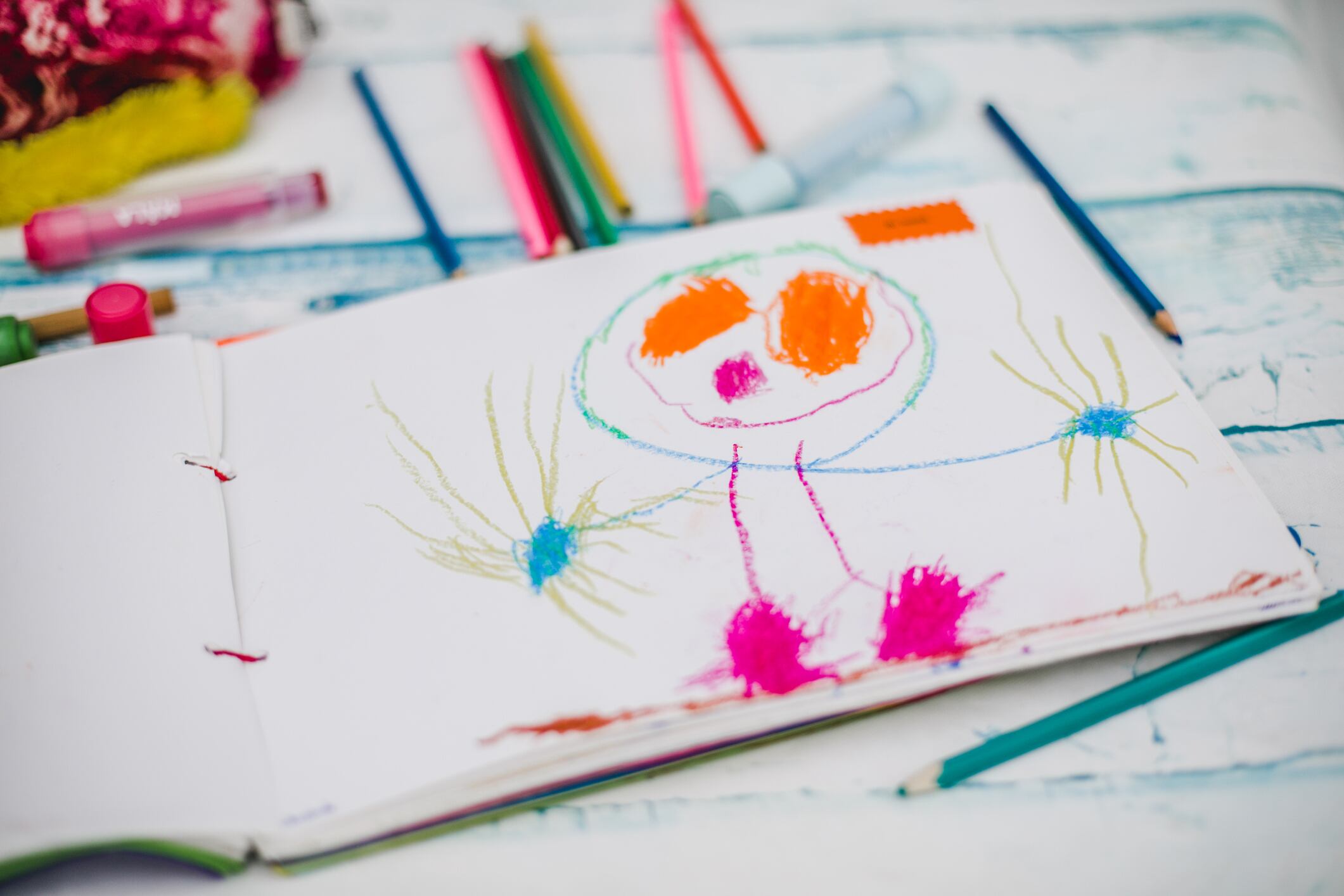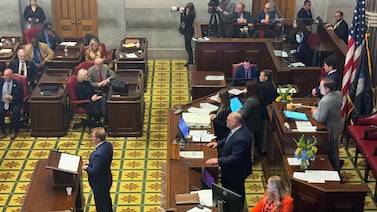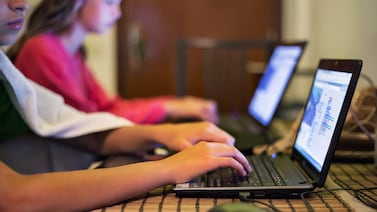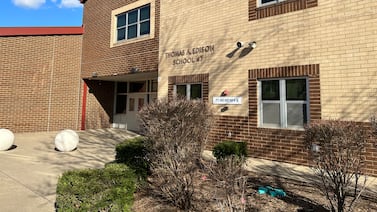Whenever kindergarten teacher Kathie Kunec wants to create joy and play in her virtual classroom, she’ll take on the role of puppeteer.
Kunec will spring Chilly, a penguin, into life. He’ll teach the children how to get along with brothers and sisters or relax around their parents if they’re upset.
“He helps us when we lose our cool. We give ourselves a Chilly hug, count to five and take a deep breath,” she said.
Before the pandemic, those lessons focused more on learning how to interact with peers inside a physical classroom. But Kunic, a teacher in the South Redford School District, had to pivot to activities that might happen at home.
So much of how kindergartners learn is rooted in play between teachers and their classmates. But halfway through a school year disrupted by the coronavirus pandemic, Kunec and other kindergarten teachers find they have to get creative to engage students and teach them the crucial social and emotional skills they need.
Research has shown that teaching those skills virtually was not enough for the youngest learners. Many parents opted not to enroll their children in kindergarten, and in the 2020-21 school year, Michigan kindergarten enrollment dropped by 13,000 students. State Superintendent Michael Rice said some parents are home-schooling their children and others are delaying kindergarten.
“There’s so many skills that are taught for the very, very first time,” Kunec said. “Because we’re teaching them in a different way, they’re not getting a chance to practice them.”
Building social and emotional skills at an early age is a strong predictor of future academic success.
“The children’s ability to problem solve, follow directions, engage in social interactions … those are skills that children need to be successful academically,” said Charis Wahman, an assistant professor at Michigan State University who studies early childhood education. “The research shows they’re not mutually exclusive. They work together.”
Briana Kelly, who teaches kindergarten in the Detroit Public Schools Community District, said she’s found creative ways to engage students online.
She’ll use bags of rice and pots and pans to teach students lessons on volume. For instance, she’ll compare the capacity of two different objects. She’ll fill each container with scoops of rice. The students will then count together how many scoops it takes to fill each container. She’ll then ask them which object will hold more or less.
Kelly said this approach makes math lessons more relatable and authentic, and helps students better understand the everyday objects they encounter at home.
Because students don’t have all the materials at home that they would in a classroom, she’s had to help them adapt.
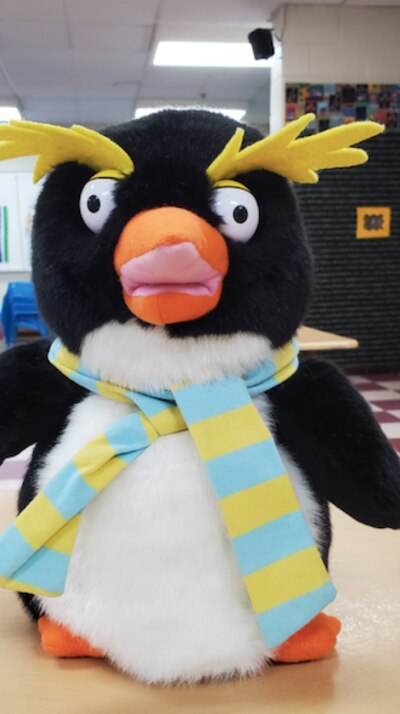
“They might not have a pencil or lined paper, but I suggest other things they can use and try to give a variety of replacement options.” she said. “A huge part of teaching is learning to be flexible, and that is even more true in the virtual setting.”
Because virtual learning provides more opportunities for small group instruction, some students are getting more attention than they would in a classroom with a large number of students. In some cases, students are ahead academically compared to Kunec’s expectations.
“Sentences are so much better this year. They really have flourished,” Kunec said, referring to her students. They’ve had more time to practice speaking in full sentences and since the groups are small, even the more timid students have more opportunities to ask and answer questions.
For the most part, the experience of remote learning has been positive for kindergarten teacher Cynthia Diaz-Stahl, who teaches for Grand Rapids Public Schools. She’s seen students respond to higher-level, probing questions.
Diaz-Stahl will often share pictures of common objects on her computer screen during a reading lesson. In one instance, she showed a picture of a cup to the students, and letter by letter taught them how to sound out the word: “c-u-p.” To check for understanding, the students will also record themselves sounding out letters.
“For me, everything I’m doing, I’m trying to show them and model how to do it,” she said. “And then also provide it for them ... as an assignment so they can learn how to do it by themselves.”
Because of the strain on working parents, kindergarten teacher Magdalena Tkatchouk often messages her students’ families to help get parents more involved in their children’s learning activities.
Tkatchouk, a teacher in Royal Oak Public Schools, said she makes sure to send scissors, glue, paper, and other materials to students’ homes each week so they can exercise fine motor skills during lessons. She schedules weekly playtimes so students can interact with each over the screen, and she also encourages them to bring along their favorite toys.
What has been difficult for some of Tkatchouk’s students is that they have trouble controlling emotions or don’t understand how to perform certain tasks. If they were in the classroom, they’d typically get more immediate guidance from a teacher.
“This is a lot for them to deal with,” she said. “This is a loss. They’ve lost time in school with friends. For a little kid, that’s a huge adjustment.”
While some kindergartners may find learning online challenging because of their still-maturing attention skills, other kindergartners who may be overwhelmed by large groups might find virtual learning easier, said Erika Bocknek, an associate professor in educational psychology at Wayne State University.
“These children may benefit from being comfortable in their physical home environment, undistracted by peers, and with live instruction broken up into chunks,” she said.
Despite efforts to keep school fun and exciting, some teachers worry how this unusual school year will affect students as they transition into the next grade.
For Kunec, there are just some things puppets can’t duplicate, like a kindergartners’ exposure to older students inside the building or learning to share toys with classmates.
“It’s not the same,” she said. “This whole group is not getting a kindergarten experience.”

